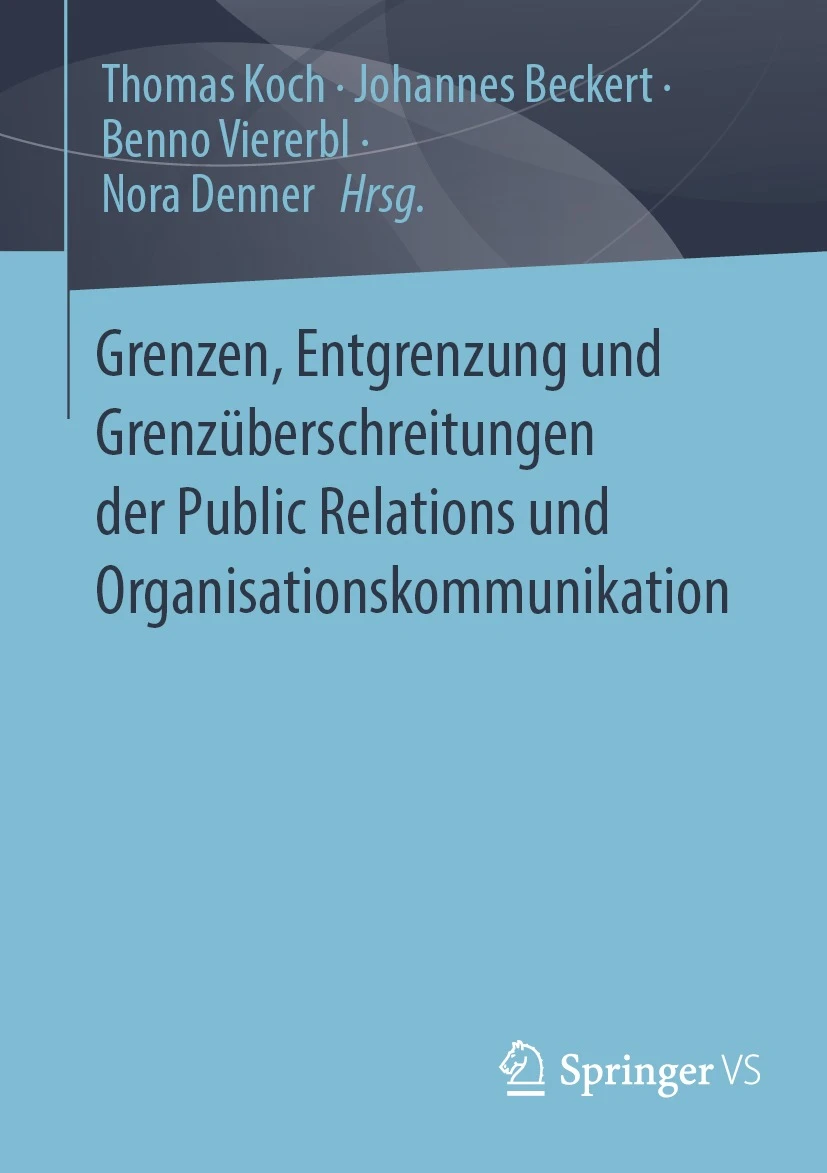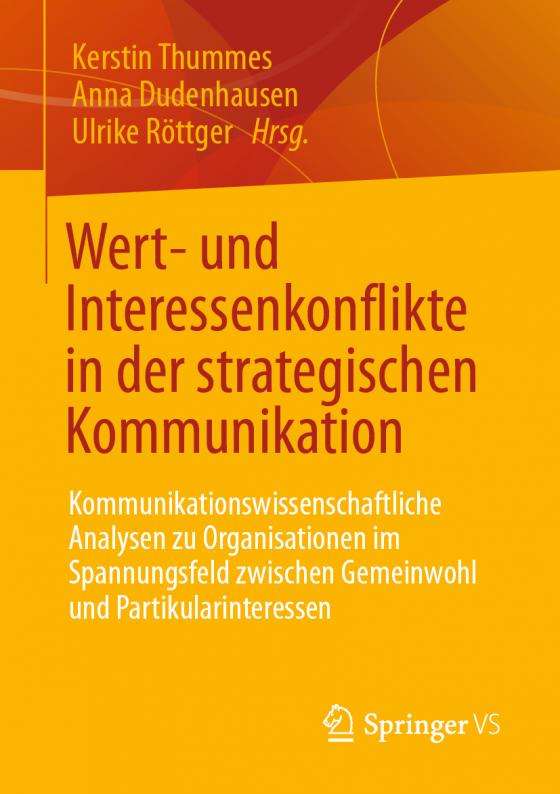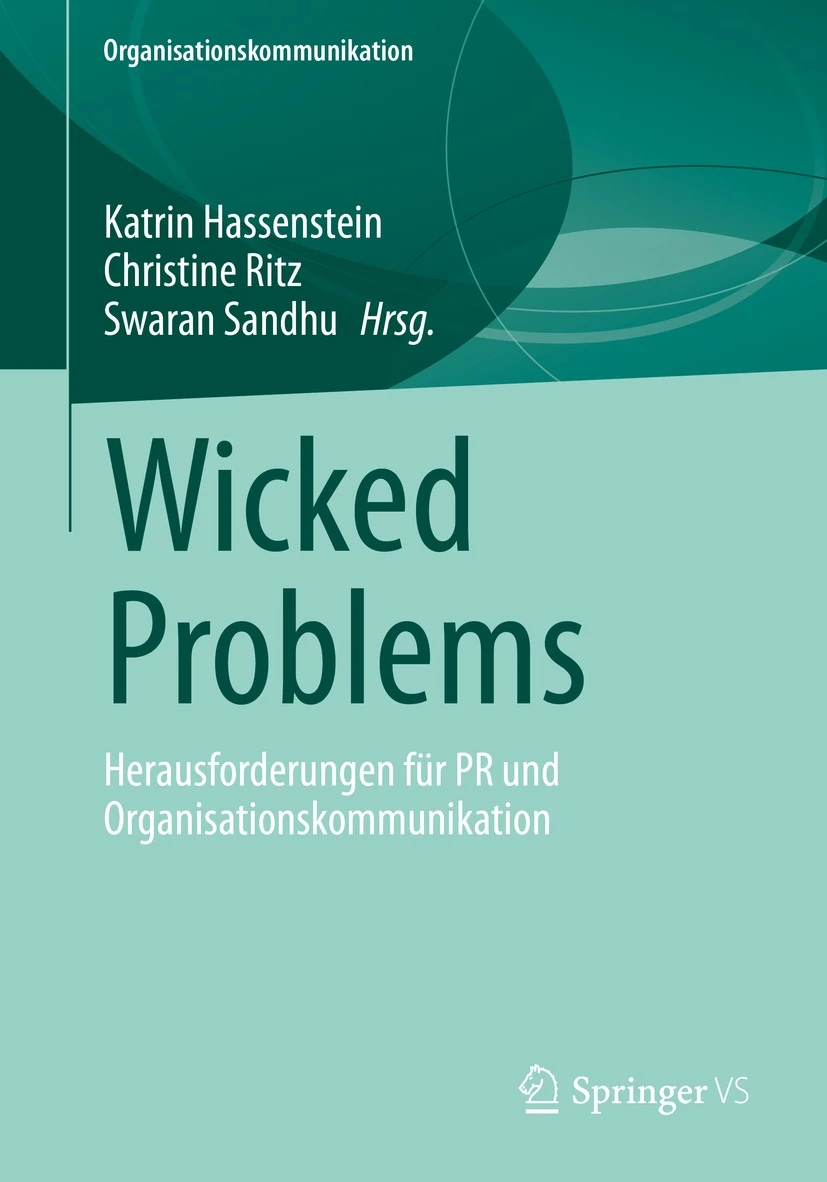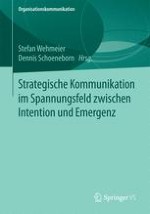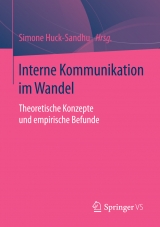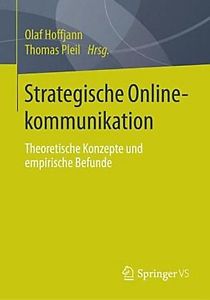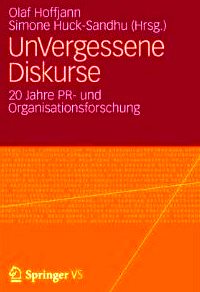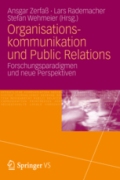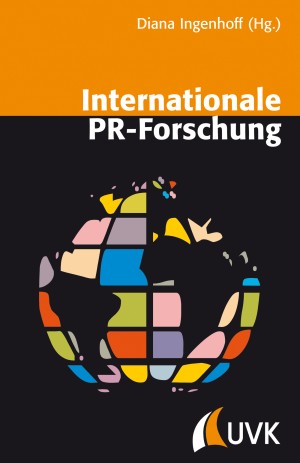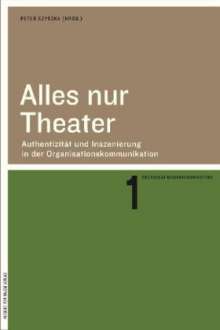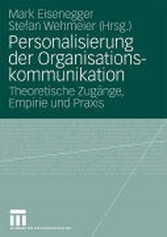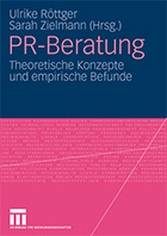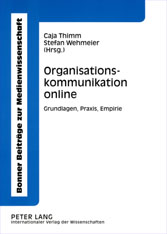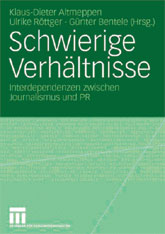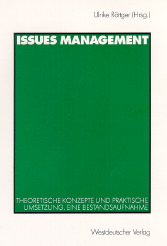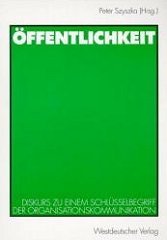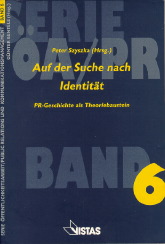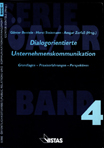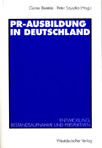Tagungen der DGPuK-Fachgruppe »Rezeptions- und Wirkungsforschung«
Januar 2026 – Klagenfurt (Universität Klagenfurt (A))
Jahrestagung der Fachgruppe Rezeptions- und Wirkungsforschung in der DGPuK.
Hier geht es zum Call for Papers und zur Tagungswebsite.
Januar 2025 – Bamberg (Universität Bamberg)
Jahrestagung der Fachgruppe Rezeptions- und Wirkungsforschung in der DGPuK.
Hier geht es zum Call for Papers und zur Tagungswebsite.
Januar 2024 – Fribourg (Universität Freiburg (CH))
Jahrestagung der Fachgruppe Rezeptions- und Wirkungsforschung in der DGPuK.
Hier geht es zum Call for Papers und zur Tagungswebsite.
Januar 2023 – Augsburg (Universität Augsburg)
Jahrestagung der Fachgruppe Rezeptions- und Wirkungsforschung in der DGPuK.
Hier gehts zum Call for Papers und hier zur Tagungswebsite.
Juni 2022 – Düsseldorf (Heinrich-Heine-Universität Düsseldorf)
Jahrestagung der Fachgruppe Rezeptions- und Wirkungsforschung in der DGPuK (Call for Papers).
Hier können Sie das Programm anschauen und finden Sie Informationen zur Tagung.
Januar 2021 – München (Ludwig-Maximilians-Universität München)
Jahrestagung der Fachgruppe Rezeptions- und Wirkungsforschung in der DGPuK (Call for Papers).
Hier können Sie das Programm anschauen und finden Sie Informationen zur Tagung.
Januar 2020 – Würzburg (Julius-Maximilians-Universität Würzburg)
Jahrestagung der Fachgruppe Rezeptions- und Wirkungsforschung in der DGPuK (Call for Papers).
Hier können Sie das Programm anschauen.
Januar 2019 – Mainz (Johannes Gutenberg Universität Mainz)
Jahrestagung der Fachgruppe Rezeptions- und Wirkungsforschung in der DGPuK (Call for Papers)
Hier können Sie das vorläufige Programm anschauen.
Hier finden Sie Informationen zur Tagung und können sich auch anmelden.
Januar 2018 – Hohenheim (Universität Hohenheim)
Jahrestagung der Fachgruppe Rezeptions- und Wirkungsforschung in der DGPuK (Tagungsinfo).
Januar 2017 – Erfurt (Universität Erfurt)
Jahrestagung der Fachgruppe Rezeptions- und Wirkungsforschung in der DGPuK (Tagungsinfo).
Januar 2016 - Amsterdam (Universität Amsterdam)
Jahrestagung der Fachgruppe Rezeptions- und Wirkungsforschung in der DGPuK (Tagungsinfo)
Januar 2015 – Bamberg (Universität Bamberg)
Jahrestagung der Fachgruppe Rezeptions- und Wirkungsforschung in der DGPuK (Tagungsinfo)
Januar 2014 – Hannover (Institut für Journalistik und Kommunikationsforschung)
Jahrestagung der Fachgruppe Rezeptions- und Wirkungsforschung in der DGPuK (Tagungsinfo)
Januar 2013 – Wien (Universität Wien)
100 Jahre Riepl’sches Gesetz: Medienkomplementarität als Herausforderung für die Rezeptions- und Wirkungsforschung (Tagungsinfo)
Februar 2012 – Hamburg (Hans-Bredow-Institut)
Journalismus und (sein) Publikum. Was Journalismusforschung und Rezeptions- und Wirkungsforschung voneinander lernen können (gemeinsam mit FG »Journalistik/Journalismusforschung«) (Tagungsinfo)
Januar 2011 – München (LMU München)
Neue Medienumgebungen, neue Rezeptionssituationen, andere Wirkungen? Theoretische Herausforderungen für die Rezeptions- und Wirkungsforschung (Tagungsinfo)
Januar 2010 – Berlin (Universität der Künste)
Rezeption und Wirkung in zeitlicher Perspektive (Tagungsinfo)
Januar 2009 – Zürich (Universität Zürich)
Zwischen Medienallmacht und -ohnmacht. Rezeption und Wirkung politischer Medienangebote (Tagungsinfo)
Januar 2008 – Hamburg (Hamburg Media School & Hans-Bredow-Institut; beide Hamburg)
Rezeptions- und Wirkungsforschung: Zur Praxisrelevanz der Forschung und zur Theorierelevanz der Praxis (Tagungsinfo)
Januar 2007 – Leipzig (Universität Leipzig)
Integrative Modelle in der Rezeptions- und Wirkungsforschung: Dynamische und transaktionale Perspektiven (Tagungsinfo)
January 2006 – Erfurt (Universität Erfurt)
Media use and selectivity – New approaches to explaining and analysing audiences (more information)
Januar 2005 – Zürich (Universität Zürich)
Unterhaltung durch Medien (Tagungsinfo)
Januar 2004 – Salzburg (Universität Salzburg)
Rezeptionsstrategien und Rezeptionsmodalitäten: Formen der Nutzung, Aneignung und Verarbeitung von Medienangeboten (Tagungsinfo)
Januar 2003 – Potsdam (Hochschule für Film und Fernsehen Potsdam-Babelsberg)
“Vom Publikum zum User” – Mediennutzung und Medienrezeption in konvergierenden Medienumgebungen
Januar 2002 – Hannover (Institut für Journalistik und Kommunikationsforschung)
Nutzung der Medienspiele – Spiele der Mediennutzer
Januar 2001 – Berlin (FU Berlin)
Der Prozess der Rezeption
Januar 2000 – Trier (Universität Trier)
Theoretische Perspektiven der Rezeptionsforschung
Januar 1999 – München (LMU München)
Medienrezeption zwischen Individualisierung und Integration
Januar 1998 – Hamburg (Hans-Bredow-Institut)
Rezeption unter sich wandelnden medialen Bedingungen
Januar 1997 – Ludwigshafen (Medien Institut Ludwigshafen)
Zielgruppen, Publikumssegmente, Nutzergruppen
Januar 1996 – Ludwigshafen (Medien Institut Ludwigshafen)
Qualität von Fernsehprogrammen aus Rezipientenperspektive
Januar 1995 – Hamburg (Hans-Bredow-Institut)
Die Interaktivität neuer Medien als Herausforderung an die Kommunikationswissenschaft (gemeinsam mit FG »Soziologie der Massenkommunikation«)
Mai 1994 – München (LMU München)
Aktuelle Studien zur Rezeptionsforschung
Januar 1994 – Hamburg (Hans-Bredow-Institut)
Individuelle Fernsehnutzung (gemeinsam mit FG »Soziologie der Massenkommunikation«)
DGPuK-Fachgruppe »Rezeptions- und Wirkungsforschung«: Selbstverständnis
Gegenstand
Die Fachgruppe »Rezeptions- und Wirkungsforschung« in der Deutschen Gesellschaft für Publizistik- und Kommunikationswissenschaft ist ein Forum für alle Forschungsfragen, die sich auf die Rezipientinnen und Rezipienten von Medienangeboten beziehen. Der Gegenstandsbereich umfasst also Nutzung (Zuwendung zu und Auswahl von Medienangeboten), Rezeption (Wahrnehmung, Verarbeitung und Interpretation der kontaktierten Medienangebote), Aneignung (Integration des Rezipierten in die je eigene Lebenswelt) sowie die Wirkungen von Medienangeboten.
Ziel
Die Fachgruppe »Rezeptions- und Wirkungsforschung« verfolgt das Ziel, die Forschung im Bereich der Rezeptions-, Nutzungs- und Wirkungsforschung und den Austausch sowie die Information über entsprechende wissenschaftliche Aktivitäten zu fördern. Dazu richtet sie Fachtagungen aus, fördert einschlägige Forschung, setzt sich für die Berücksichtigung dieser Forschung in Ausbildungsplänen und für ihre Anwendung in Praxisfeldern ein, fördert internationale Zusammenarbeit sowie den wissenschaftlichen Nachwuchs.
Fachgruppe Rezeptions- und Wirkungsforschung
Herzlich willkommen auf unserer Fachgruppenseite!
Hier finden Sie und findet ihr...
- ...aktuelle Meldungen aus der Fachgruppe
- ...Kontaktdaten der aktuellen FG-Sprecher:innen
- ...einen Überblick über die FG-Tagungen
- ...Informationen zur Reihe "Rezeptionsforschung"
- ...und vieles mehr!
Aktuelle Dokumente
- Call for Papers der Fachgruppentagung 2026 in Klagenfurt
- Webseite der Fachgruppentagung 2026 in Klagenfurt
Sprecherinnen
Institut für Kommunikationswissenschaft und Medienforschung
naprok
naprok ist ein Netzwerk von und für Nachwuchswissenschaftler:innen der Kommunikationswissenschaft und angrenzender Disziplinen, das sich dem Austausch von Kontakten, Ideen und aktuellen Forschungsvorhaben im Bereich der PR- und Organisationskommunikationsforschung widmet. naprok veranstaltet seit 2012 den Doktorand:innenworkshop. Weitere Informationen und Kontaktdaten finden Sie auf der Seite von naprok.
Doktorand:innenworkshop
Seit 2010 bietet die Fachgruppe PR- und Organisationskommunikation im Vorfeld der Jahrestagung einen eintägigen Doktorand:innenworkshop an, der seit 2012 federführend vom Nachwuchsnetzwerk naprok organisiert wird. Angesprochen sind Doktorand:innen im Bereich der Forschung zur PR- und Organisationskommunikation. Es sind explizit auch Nachwuchswissenschaftler:innen angesprochen, die (noch) nicht Mitglied in der DGPuK sind. Der Workshop richtet sich an Doktorand:innen in jeder Phase der Promotion, auch wenn diese erst in den Kinderschuhen steckt. Im Mittelpunkt steht der Austausch zwischen den Doktorand:innen zu inhaltlichen Fragen, insbesondere aber auch zu arbeitsökonomischen und Karriere-Fragen.
Der diesjährige Doktorand:innenworkshop findet am 22. Oktober 2025 in Greifswald statt. Es gibt die Möglichkeit, sich für zwei verschiedene Formate anzumelden. Entweder für einen klassischen Vortrag des Dissertationsvorhabens oder für einen Kurzvortrag mit einem Fokusthema (Ideenskizze, spezifische Fragestellung o.Ä.). Die Anmeldung hierfür ist bis zum 01. September 2025 möglich. Für die passive Teilnahme ohne Vortrag ist die Anmeldung bis zum 01. Oktober 2025 möglich. Genauere Infos zur Anmeldung gibt es im Call for Participants.
Hier geht's zum Call for Participants!
Vergangene Doktorand:innenworkshops
15. Doktorand:innenworkshop am 29./30.10.2024 in berlin
14. Doktorand:innenworkshop AM 24./25.10.2023 in darmstadt
13. Doktorand:innenworkshop AM 25./26.10.2022 in bamberg
12. Doktorand:innenworkshop AM 02./03.11.2021 in MAINZ
11. Doktorand:innenworkshop am 30./31.10.2020 digital
10. Doktorand:innenworkshop am 30./31.10.2019 in Münster
9. Doktorand:innenworkshop am 07./08.11.2018 in Stuttgart
8. Doktorand:innenworkshop am 22./23.11.2017 in Wien
7. Doktorand:innenworkshop am 02./03.11.2016 in Hannover
6. Doktorand:innenworkshop am 03./04.11.2015 in Greifswald
5. Doktorand:innenworkshop am 29./30.10.2014 in Pforzheim
4. Doktorand:innenworkshop am 30./31.10.2013 in Wolfsburg
3. Doktorand:innenworkshop am 31.10./01.11.2012 in München
2. Doktorand:innenworkshop am 02./03.11.2011 in Fribourg
1. Doktorand:innenworkshop am 03./04.11.2010 in Leipzig
Nachwuchsförderung
Seit einigen Jahren fördert die Fachgruppe mit verschiedenen Maßnahmen den wissenschaftlichen Nachwuchs:
- Seit 2010 gibt es im Vorfeld des Jahrestagung einen Doktorand:innenworkshop
- Seit 2011 gibt es das Nachwuchsnetzwerk naprok
- 2013 wurde erstmals der Dissertationspreis vergeben
Akademische PR-Ausbildung in Deutschland
Positionspapier der Fachgruppe PR/Organisationskommunikation
Mit diesem Papier will die Fachgruppe PR/Organisationskommunikation der Deutschen Gesellschaft für Publizistik- und Kommunikationswissenschaft (DGPuK) ihre Position zur akademischen PR-Ausbildung vermitteln – insbesondere den an einem Studium Interessierten und der PR-Praxis. Hierzu werden die Kernkompetenzen und die Qualifikationsziele einer akademischen PR-Ausbildung in Deutschland benannt.
Protokolle und Tätigkeitsberichte
Protokolle der Mitgliederversammlungen seit 2013
Fachgruppentagung 2023, Darmstadt
Fachgruppentagung 2022, Bamberg
Jahrestagung 2021, Zürich (digital)
Jahrestagung 2020, München (wegen Covid-19-Pandemie und Abbruch der Tagung entfallen)
Fachgruppentagung 2019, Münster
Fachgruppentagung 2018, Stuttgart
Fachgruppentagung 2016, Hannover
Fachgruppentagung 2015, Greifswald
Fachgruppentagung 2014, Pforzheim
Fachgruppentagung 2013, Wolfsburg
Tätigkeitsberichte von 2011 bis 2018
Fachgruppenordnung
§ 1 Bezeichnung
Die Fachgruppe führt die Bezeichnung “Fachgruppe Public Relations/Organisationskommunikation in der Deutschen Gesellschaft für Publizistik- und Kommunikationswissenschaft” und ist Organ der DGPuK gemäß den §§ 6c und 9 der Satzung der DGPuK.
§ 2 Aufgaben und Ziele
Die Fachgruppe Public Relations und Organisationskommunikation vertritt und unterstützt die Interessen der DGPuK-Mitglieder, die zu Themen und Fragestellungen der Public Relations und Organisationskommunikation forschen und lehren. Zu den Zielen der Fachgruppe zählen insbesondere:
- Information, Koordination und Dokumentation über die Aktivitäten in Forschung und Lehre im Themengebiet Public Relations/ Organisationskommunikation
- Organisation und Durchführung von regelmäßigen – in der Regel jährlichen – Fachtagungen
- Förderung der Forschung, die sich mit der Kommunikation in, von und über Organisationen beschäftigt
- Förderung der internen Fachdiskussion
- Förderung einer angemessene Berücksichtigung der Public Relations in kommunikationswissenschaftlichen Ausbildungsplänen
- Förderung des publizistik- und kommunikationswissenschaftlichen Nachwuchses, der sich für die Erforschung der Public Relations/ Organisationskommunikation interessiert
- Förderung der internationalen Zusammenarbeit von PR-Forscherinnen und PR-Forschern
- Förderung des Austausches zwischen PR-Praxis und PR-Forschung
§ 3 Fachgruppenmitgliedschaft
(1) Die Mitarbeit in der Fachgruppe steht allen Mitgliedern der DGPuK offen. DGPuKMitglieder erklären Ihre Zugehörigkeit zur Fachgruppe durch eine entsprechende schriftliche Erklärung gegenüber dem Vorstand der DGPuK und dem Fachgruppensprecher/der Fachgruppensprecherin.
(2) Die Mitgliedschaft in der Fachgruppe kann durch eine entsprechende schriftliche Mitteilungen gegenüber dem DGPuK-Vorstand und dem Fachgruppensprecher/der Fachgruppensprecherin beendet werden. Die Mitgliedschaft in der DGPuK bleibt davon unberührt.
§ 4 Fachgruppenversammlung
(1) Versammlungen der Fachgruppe finden mindestens einmal jährlich statt. Eine schriftliche Einladung und die Zusendung der Tagesordnung erfolgt mindestens drei Wochen vor der Versammlung durch den Fachgruppensprecher/die Fachgruppensprecherin.
(2) Auf Antrag von mindestens drei Fachgruppenmitgliedern muss eine Fachgruppenversammlung stattfinden.
(3) Der Beschlussfassung der Mitgliederversammlung unterliegen mit Zweidrittelmehrheit Satzungsänderungen, Auflösung der Fachgruppe, Entscheidungen über angefochtene Beschlüsse der Fachgruppensprecher. Alle weiteren Beschlussfassungen (u.a. Wahl der Fachgruppensprecher) sind bei einfacher Mehrheit gültig.
(4) Über die Beschlüsse und Wahlen auf Fachgruppenversammlungen wird ein Protokoll verfasst. Die Protokolle werden den Fachgruppenmitgliedern und dem Vorstand der DGPuK zugeschickt.
§ 5 Fachgruppenleitung
(1) Die Leitung der Fachgruppe besteht aus dem Sprecher/ der Sprecherin und einem Stellvertreter/ einer Stellvertreterin, die von den Mitgliedern der Fachgruppe auf der Fachgruppenversammlung für zwei Jahre gewählt werden. Eine einmalige direkte Wiederwahl ist möglich.
(2) Scheidet ein Mitglied der Fachgruppenleitung vorzeitig aus dem Amt, so muss innerhalb eines vertretbaren Zeitraums eine Neu- bzw. Nachwahl durchzuführen.
(3) Die Fachgruppenleitung koordiniert die Aktivitäten der Fachgruppe und vertritt diese in der DGPuK bzw. gegenüber dem DGPuK-Vorstand. Ihr obliegt auch die Berichtspflicht gegenüber dem Vorstand der DGPuK.
§ 6 Auflösung
Sind weniger als 5 Fachgruppenmitglieder beim Vorstand der DGPuK registriert, so hat die Fachgruppenleitung der Mitgliederversammlung der DGPuK die Auflösung der Fachgruppe vorzuschlagen.
§ 7 Änderung der Ordnung
Die Änderung der Ordnung kann mit einer Mehrheit von zwei Dritteln auf einer Fachgruppenversammlung beschlossen werden. Voraussetzung ist, dass mindestens 20 Prozent der Fachgruppenmitglieder an der Versammlung teilnehmen.
(Verabschiedet von der Fachgruppenversammlung am 25. Mai 2001 in Münster)
Publikationen der Fachgruppe
| ||||||||||||||||||
| ||||||||||||||||||
| ||||||||||||||||||
| ||||||||||||||||||
| ||||||||||||||||||
| ||||||||||||||||||
| ||||||||||||||||||
| ||||||||||||||||||
| ||||||||||||||||||
| ||||||||||||||||||
| ||||||||||||||||||
| ||||||||||||||||||
| ||||||||||||||||||
| ||||||||||||||||||
| ||||||||||||||||||
| ||||||||||||||||||
| ||||||||||||||||||
|
Kommende Tagungen
- Universität Greifswald, 2025
„Umkämpfte Transformation – Organisationskommunikation als Treiber oder Blockierer gesellschaftlichen Umbruchs?"
Call for Papers
Tagungswebsite
Fachgruppentagungen seit 2008
- Freie Universität Berlin
„Strategische Kommunikation in der Politik und das Politische in der strategischen Kommunikation"
Call for Papers
Programm
- Hochschulen Darmstadt, Osnabrück, Winterthur/Zürich, Hannover, 2023
„Organisationsdiskurse und Handlungsfelder der PR"
Call for Papers
Programm
- Otto-Friedrich-Universität Bamberg, 2022
„Strategische Wahrheiten? Wirklichkeiten, (Un)Wahrheit und (Un)Wahrhaftigkeit in der strategischen Kommunikation"
Call for Papers
Programm
- Johannes Gutenberg-Universität Mainz, 3.-5.11.2021
„Grenzen, Entgrenzung und Grenzüberschreitungen der Public Relations und Organisationskommunikation"
Call for Papers
Programm
- Webkonferenz, 29.-30.11.2020
„Aktuelle Forschung zu Public Relations und Organisationskommunikation“
Call for Papers
Programm
- Westfälische Wilhelms-Universität Münster, 31.10.-2.11.2019
„Zwischen Gemeinwohl und Partikularinteressen: Wert- und Interessenkonflikte in der strategischen Kommunikation"
Call for Papers
Programm
- Hochschule der Medien Stuttgart, 08.-10.11.2018
„Intuition, Institution, Ideologie und Impact: Wicked Problems in der PR- und Organisationskommunikation"
Call for Papers
Programm
- Universität Wien, 23.-25.11.2017
„Das Verhältnis von Public Relations und Werbung. Unterschiede – Gemeinsamkeiten – Grenzziehungen”, in Kooperation mit der Fachgruppe Werbekommunikation.
Call for Papers
Programm
- Hochschule Hannover, 3.-5.11.2016
„Organisationskommunikation und Public Relations zwischen Herkunft und Zukunft. Historische Entwicklungslinien und Entwicklungsperspektiven”
Call for Papers
Programm
- Ernst-Moritz-Arndt-Universität Greifswald, 05.-07.11.2015
„Strategische Kommunikation im Spannungsfeld von Intention und Emergenz”
Call for Papers
Programm
- Hochschule Pforzheim, 30.10.-01.11.2014
„Interne Kommunikation im Wandel. Theoretische Konzepte und empirische Befunde”
Call for Papers
Programm
- Ostfalia Hochschule für angewandte Wissenschaften (Wolfsburg), 30.-31-10.2013
„Kritischere Öffentlichkeit? Neue Meinungsbildung? Mehr Beteiligung? Neue Rahmenbedingungen für die strategische Online-Kommunikation”
- Ludwig-Maximilians-Universtität München 01.-03.11.2012
„Politik – PR – Persuasion” (in Kooperation mit: „Munich Center on Governance, Communication, Public Policy and Law”)
- Université Fribourg, 03.-05.11.2011
„Internationale und komparative Organisationskommunikations-/PR-Forschung”
- Universität Leipzig, 03.-06.11.2010
„Organisationskommunikation und Kommunikationsmanagement – zur Aktualität und Neubestimmung einer Konstellation“
- Zürcher Hochschule für angewandte Wissenschaften (Offenburg), 05.-07.11.2009
„Alles nur Theater?“ Authentizität und Inszenierung in der Organisationskommunikation
- Westfälische Wilhelms-Universität Münster, 02.-04.10.2008
„Kartografie externer PR-Dienstleister: Strukturen, Akteure, Verfahren und Effekte der PR-Beratung”



